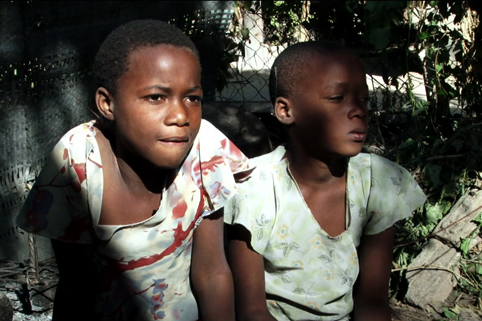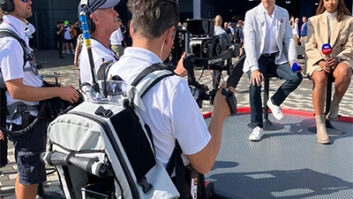
The Rory Peck Awards recognise broadcast journalists reporting from frontline danger zones around the world. George Jarrett reports, with full details of the latest award winners.
The Rory Peck Trust, now a global player with a footprint in 60 countries, confirmed its hugely improved reach to the recklessly brave brigade known as freelance news gatherers with an awards event that attracted entries from over 25 nationalities.
The British share of credits was a significantly less dominant 30%, and it was stories from Libya that took the news and feature awards. The deaths of Tim Hetherington, Mohammed al-Nabbous and Anton Hammerl in that theatre of the Arab Spring amplified the achievements of Ahmed Bahaddou (Belgium) and Abdallah Omeish (America), and added huge weight to comments by trust Chairman Michael Jermey.
“Freelancers are the most vulnerable in news gathering. So many cameramen and women have been killed in the course of their work. The great courage and initiative of freelancers is not in question, but without safety training, insurance, security and the other back up that staffers take for granted, what happens when things go wrong?,” he asked.
“On a daily basis [our team] is in touch with a wide network of partners and contacts all over the world,” he added. “Some of these organisations lobby and others investigate. Within this network we have a special role. The trust is the only one that is 100% dedicated to providing direct, practical help to freelancers and their families.”
It exploded exactly there
In the news category Ahmed Bahaddou’s winning story, Rebels in Western Libya (pictured), was filled with disconcerting numbers of live rounds flying overhead, and marked by his incredible composure and extraordinary observational powers. He had been covering the flow of Libyan refugees into Tunisia, when he decided to cross into the tough terrain around the village of Al Majabira. AP was both commissioner and broadcaster.
“I was just following civilians who next second became sort of soldiers, who tried to train and pick up weapons,” he said. “They wanted to defend their villages, and take on the Gadaffi army.”
Weapons arrived via planes that landed on a highway, but it was too risky to get close with the camera. “A few died in the battle for that village because these people were not military, and you could see it. They did not know what they had in front of them – real military guys who were not joking,” he said. “They launched three salvoes of mortars, and then I would say now we move because the next one is going to be right where we are. We moved, and it exploded exactly there!
“This job is pure Russian roulette, 99.9% chance. And once you have crossed the red line and you are into it, you know you have a chance of dying. But you forget it because of the whole thing you do and the reason you are there,” he added. “Once you are in a war zone there is no safe place. In Libya I took off the press ID vest from my flak jacket because it reflects light. A sniper could see me: I give one reflection, and a second later I have a bullet in my head.”
Abdaliah Omeish, Libyan born, took the feature honours with Libya: Through the Fire, screened by Aljazeera English. He arrived in Benghazi as it was under bombardment from Gadaffi forces, and focused his story on Nabbous, who set up an independent satellite TV station to broadcast his reports in Libyan and English, and became an embodiment of the Arab Spring.
“It was just a passion of wanting to tell a story that people did not know about, and giving a voice to the voiceless,” he said. “It is always about what touches your heart.”
The Sony Impact Award – the Australian born Jezza Neumann’s Zimbabwe’s Forgotten Children – came from another high quality set of productions. Neumann concentrated on three desperate and courageous kids fighting to survive with nothing: one digs for bones on a Harare rubbish tip, another pans for gold, and the third cares for her mother, who is dying of AIDS.
The Atex-sponsored Martin Adler prize franked the Libyan dominance of the event – going to the fixers Suliman Ali Zway and Osama Alfitory. This pair helped so many international journalists in Eastern Libya; they were dubbed The Benghazi A Team.







